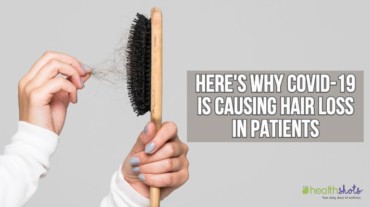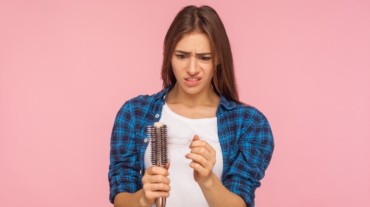
By now the world concurs: covid-19 can leave a long-lasting mark on your body. Ask anybody who has recovered from the coronavirus infection, and they are likely to tell you that the respiratory discomfort still persists and that their immunity has gone for a toss. But what if we tell you there is one thing that covid-19 can do to your body that no one saw coming? We’re talking about hair loss.
According to recent reports, hundreds of covid-19 survivors have been complaining of hair loss, which usually makes its presence known weeks after recovering. If you’re wondering how the SARS-CoV-2 virus affects the hair follicles, then let us tell you that experts believe that this hair loss is not the doing of the infection—rather the consequence of the physical and emotional stress a person goes through when infected by covid-19.
Stressful events and hair loss have an old friendship
While we are still waiting for the scientific community to delve deep into why covid-19 causes hair loss, one thing is for certain: this isn’t the first viral infection to affect hair.
Dengue, for instance, is known to cause hair loss—though it is reversible, as the fallen strands tend to grow back after your body recovers. But, much like covid-19, the reason for hair loss here isn’t dengue exactly; rather a process called telogen effluvium is to blame.

Telogen effluvium is a type of temporary hair loss which is triggered by a stressful or a traumatic event. This shock, stress or trauma can be caused by grief, major weight loss, high fever, and severe infection amongst other things. According to Harvard Health Publishing, this condition lasts for two to four months after the stressful events and poses little to no risk of balding—as the hair that you are shedding is promptly replaced by new strands.
What can you do about this hair loss?
Since this hair loss is a way of your body dealing with the stress, there isn’t much you can do apart from letting nature take its course. That said, to ensure that your hair grows back long and strong—you can eat a nutritious diet which is right in protein and hair-growth-boosting vitamins.
Also, watch:
Also, while your hair is shedding it might be a good idea to refrain from using too much heat or chemicals on your mane to protect it from damage.